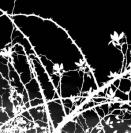Inheritance Trilogy--Book One
OPENING DISCLAIMER: Although the scope of my reading is relatively small and I am often neatly impressed with less than perfect literature, I am also one of the harshest critics I know, and it is much easier for me to point out what I dislike about books than what I like. I will indicate if I'm going to give a plot spoiler. Fair warning.
Before I begin hacking away, let me say that I did enjoy Eragon. It was a decent book--not great, but decent. I make no claim that I could have written it any better, and for Christopher Paolini's age, it's outstanding; however, I must confess that if one were to ask me to describe Eragon with one word, it would be "cliche." Before I am verbally slaughtered by some dedicated fan, let me explain what some might view as harsh accusations:
First, the story as a whole. Hmmm. It had a basic foundation (lower class farm boy growing up in isolated location with uncle, unsure who his father was, mother presumably dead, discovers he has ancient-rooted, astounding powers), and almost from the start, it reminded me of Star Wars, with dragons instead of space-ships. Galbatorix, though we rarely meet him, seems a very Vader-ish villain, and Eragon-- being the first new Dragon Rider since the order was almost completely annihilated, guided by a mysterious, very Obi-Wanish teacher--is a lot like Luke. Now, as my mother pointed out, there seem to be only so many plotlines in our imaginations, and Paolini does an adequate job of surrounding a cliche foundation with excitement, albeit fairly predictable.
Perhaps I could have ignored the somewhat hackneyed plot easier if the characters had been a little more...defined. In fact, I think the biggest letdown of Eragon was...well, Eragon. I just couldn't get attached to the kid, especially as the begrudging hero. He was just, so...unoriginal--boy, destined for greatness, embittered by family death, seeking revenge while grappling with rising anger, power, crushed innocence, and a bigger, harsher world than he had imagined in his secluded Carvahal existance. And Brom...as I said, he's Obi Wan Kenobi regurgitated. You know, everyone in the Palancar Valley assumes he's a simple, crazy old man from no-one-really-cares-where, and it isn't until Eragon--the Luke Skywalker prototype--begins to discover his destiny that we realize he's much more; (spoiler warning) indeed, as Brom lay dying, we realize he is, in fact, a Jedi Knight...oh, whoops, I meant a Dragon Rider.
Now, there were characters I felt more empathy and respect toward. Saphira's straightforward personality was a pleasing contrast to Eragon's naivity and occasional stupidity. Murtagh was also a strong character (perhaps my favorite), whom I felt more sympathetic toward than Eragon. Arya was your somewhat standard but nonetheless fiercely intelligent and beautiful elf, with a satisfactory backstory behind her. Lesser characters, like the herbalist-witch Angela (close behind Murtagh in vying for my favor) from Teirm, and the Varden leader Ajihad were quite satisfactory and richly woven into the storyline. The Raz'zac (did anyone else notice that Raz'zac and Zar'roc are nearly the same name with the first syllable reversed?) were competently intruiging, as far as Nazgul-ish pawns of a crazed and wicked Emperor can be.
*Sighs, glances at clock, wipes brow*...Well, now that my main critiquing is done, I'll give my ever sought-after opinion (haha) on Paolini's writing. At the beginning, I was quite impressed with his writing style, especially accounting for his age. However, I got used to it quickly and wasn't as captivated after the first hundred pages or so; other than that, he had flawless punctuation, good grammatical structure, decent structural variation, and great vocabulary. As to the latter, though, I do have one small complaint, and this is simply a result of my voracious love and anal critique of words. I like to be surprised by a word I've never seen before, and when an author inserts a somewhat uncommon word like galvanized or stymied more than twice in a book, be there well over a hundred pages between usages, I notice it and it irks me. But that's just me.
Lastly, the language Paolini created for this saga is perhaps the most impressive fascet. I can see where he derived some of the words from, uh, earthly languages, yet it is wholly a language of its own. It sounds as ancient and powerful as it should, and I am in awe of the feat of anyone inventing a new language. Impressive, indeed.
In conclusion, though it was disappointingly unoriginal in many areas, as I said earlier, it was still a decent book. And we shall see; Eldest may prove itself to be not only good, but great...
Editor's note: This post probably wouldn't have been so confoundedly long if not for a discussion I had with Aunt Bee, who found Eragon to be a most outstanding accomplishment for young Paolini, which I willingly submit it to be, and had trouble understanding my complaints; as I tend to be more concise in writing than spoken dialogue, I decided to blog my frustrations--and delights--with the first installment of The Inheritance Trilogy.


<$BlogCommentsBody$>
<$BlogCommentsDateTime$>
<$BlogCommentsDeleteIcon$><$BlogCommentsBody$>
<$BlogCommentsDateTime$>
<$BlogCommentsDeleteIcon$>